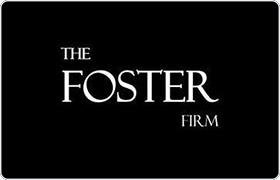Mary Esther DUI-DWI Lawyer, Florida
Sponsored Law Firm
-
 x
x

Click For More Info:
-
The Foster Firm
42 Business Centre Drive Suite 301 Miramar Beach, FL 32550» view mapCriminal Defense Law We Will Protect Your Rights!
Our law firm has been operating for more than 15 years and our team has numerous years of experience between them, to ensure you get the best legal advice possible.
800-940-3710
Coy Howard Browning
✓ VERIFIEDPersonal Injury, Car Accident, Motorcycle Accident, Wrongful Death, DUI-DWI
As a former Florida State Trooper, Coy H. Browning has investigated over 1,000 car, truck, and motorcycle accidents. Coupled with his exceptional back... (more)
Byron E. Cotton
✓ VERIFIEDCriminal, Wills & Probate, Felony, DUI-DWI, Misdemeanor
The law firm of Cotton & Gates, Attorneys at Law, has provided high-quality service and representation to people in Okaloosa County and Northwest Flor... (more)
FREE CONSULTATION
CONTACTAnna G. Cothran
Credit & Debt, Criminal, DUI-DWI, Domestic Violence & Neglect
Status: In Good Standing
Tim M. Flaherty
Juvenile Law, Domestic Violence & Neglect, , Firearms, DUI-DWI
Status: In Good Standing
FREE CONSULTATION
CONTACTStephen Cobb
Criminal, DUI-DWI, Felony, Misdemeanor, White Collar Crime
Status: In Good Standing Licensed: 35 Years
FREE CONSULTATION
CONTACTJames C Campbell
Farms, Family Law, Divorce, DUI-DWI, Accident & Injury
Status: In Good Standing Licensed: 45 Years
John F. Greene
Family Law, Divorce, DUI-DWI, Criminal, Bankruptcy
Status: In Good Standing Licensed: 40 Years
 James J. Foster Miramar Beach, FL
James J. Foster Miramar Beach, FL Practice AreasExpertise
Practice AreasExpertise


